A month at sea expanding her horizons and knowledge

©V.Sentilhes
EPFL student Oriane Etter and 48 other students from universities around the globe just completed the ACE Maritime University. This month-long marine sciences study program took place on the Russian research vessel Akademik Treshnikov, which arrived in South Africa yesterday. It will head back out to sea on 20 September for the Antarctic Circumnavigation Expedition (ACE), a major three-month scientific exploration.
“The thought that you’re sitting on top of 5,000 meters of water makes your head spin.” Oriane Etter is working on her Master’s degree in EPFL's Physics of Aquatic Systems Laboratory. Yet this young woman just spent the past month far from the school's halls and classrooms. She was taking part in the ACE Maritime University on board the Akademik Treshnikov – an imposing research vessel chartered for the Antarctic Circumnavigation Expedition (ACE).
The ACE Maritime University was held on the ship during its transit voyage from its home port in Bremerhaven, Germany to Cape Town, South Africa, where it arrived yesterday. The ACE expedition will begin on 20 December, carrying nearly 60 researchers on a three-month scientific voyage around Antarctica. The month-long ACE Maritime University hosted 49 students who study water-related sciences – including oceanography, hydrology and climatology – in universities around the world.
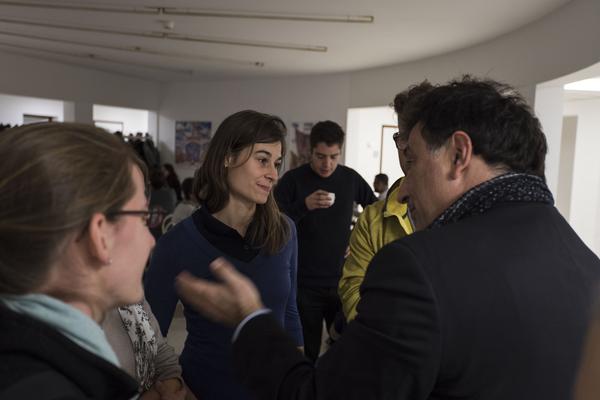
Before departure in Bremerhaven, Germany, Oriane Etter discussing with Philippe Gillet, Swiss Polar Institute ad interim director.
Oriane was the only EPFL student on board. And her thing is fresh water: her Master’s project focuses on a specific part of Lake Geneva, where she is studying urban waste in lakes. The vastness of the ocean provided her with a new perspective. “The discussions among students and the classes we took on the ship opened my eyes to the wide range of ocean-related fields you can study”, she said a few hours before the voyage ended.
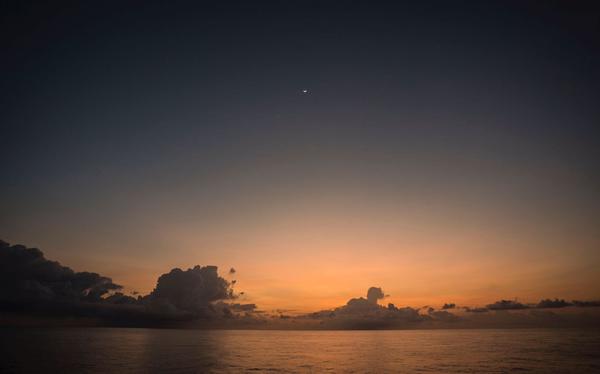
Sunset on the Equator...
Wanderlust
Oriane, who is from Fribourg, has always been interested in environmental issues. She lives by this ethic, which has given her a desire to explore and brought her to EPFL to study Environmental Sciences and Engineering. It has also led her to a number of interesting life experiences. Oriane first learned about oceanography during her Erasmus exchange in Norway. That came after a gap year during which she volunteered on organic farms in Germany for a few months and worked as a whale watching guide in the Bay of Fundy, in Nova Scotia, Canada .
This 25-year-old has now completed the ACE Maritime University as well. Before the trip, Oriane looked forward to meeting new people on this adventure, learning how to operate oceanographic instruments and experiencing the multidisciplinary structure of the teams and work on the ship. She was not disappointed.
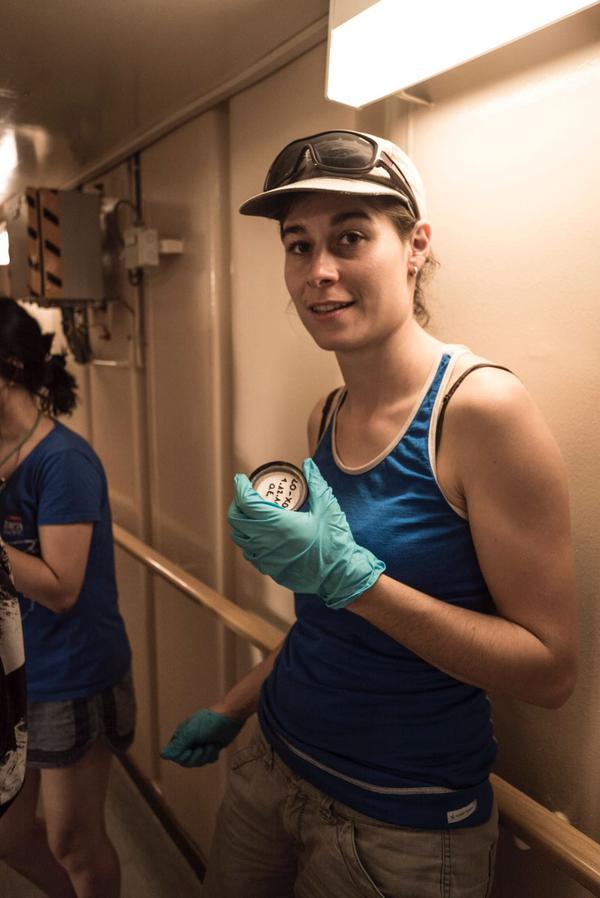
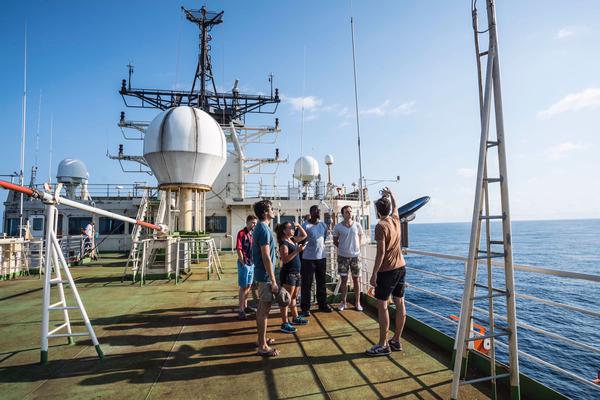
Oriane with samples collected in the frame of the afternoons' work sessions on the deck.
“I'm struck by the vastly different backgrounds of the other participants and by the depth of the discussions we have about education, critical thinking, the role of science and climate change,” she said while the boat was sailing off the Namibian coast. “In our daily lives, it's easy to get discouraged by the feeling that people don't care about environmental issues or social problems in general. But here, we realize that we’re not alone, that we share these feelings, and that we have the same desire to take action. It’s extremely inspiring.”

Sampling wih the Bongo net
Back to basics
Oriane will never forget watching waterspouts form off the coast of Angola, where the sea meets the sky. “It was really fascinating – but also scary, because if they kept growing we knew we were in danger!” She also mentioned some of the presentations, like the one by Kyle Neumann, a student at the University of California. He uses remotely operated vehicles equipped with cameras to take underwater pictures.
Then there's the human dimension of living in close quarters and sharing this type of experience. “All those card games, including jass, were really unforgettable. We won people over to Swiss culture through these games – and with the help of lots of chocolate.”
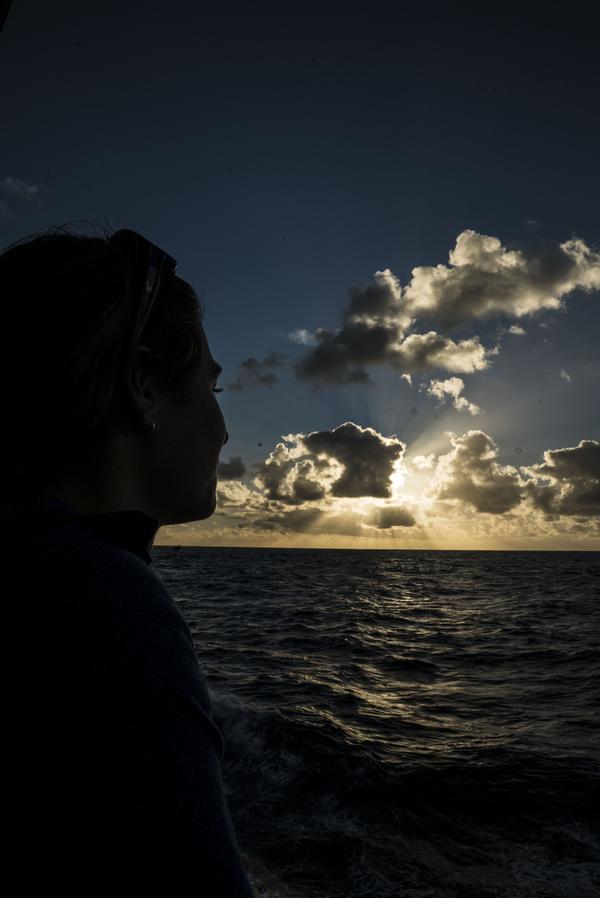
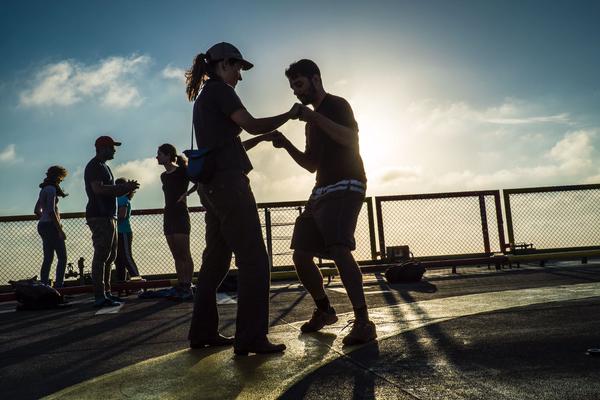
Sunset off the coast of Mauritania and swing course on the helideck. Oriane dancing with a Zurich University student.
Oriane also enjoyed getting back to basics during this voyage. “We are totally taken care of, yet we’re also exposed to the forces of nature. Your senses are heightened. Eating becomes a new experience. The ocean changes so fast, there are so many textures, emotions and colors that it’s never the same. And then living in a confined space, without the internet, forces us to interact, to talk to each other, to wait, to write paper messages, where passing along information by word of mouth becomes an authentic experience. You just throw yourself into it.”
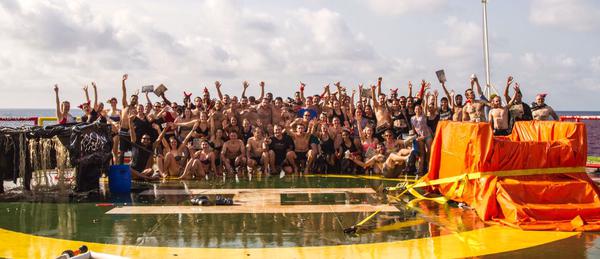
ACE Maritime University students on the occasion of the "line crossing" ceremony.
Photos: (c)V.Sentilhes
Follow ACE expedition on: http://spi-ace-expedition.ch/